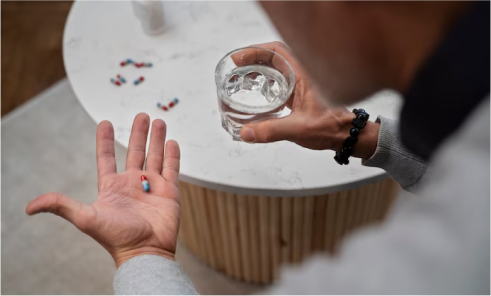


Improving Sleep for Peripheral Neuropathy Sufferers
When it comes to improving quality of life, almost nothing compares to getting adequate, good quality sleep.
Here are some good habits to follow that have been shown to help establish good quality sleep:
1. Establish a Regular Bedtime: Your body rhythms can be reset at any age, so choose a bedtime and try to adhere to it every night. Shoot for 7-8 hours of sleep per night. More is not beneficial, and less can be dangerous.
2. Stop Smoking: Aside from their detriment to our overall health, cigarettes, like caffeine, act as stimulants. They produce a "rush" in the smoker that has often been likened to drinking 3-4 cups of coffee in one sitting. Again, stimulating our systems when we're trying to fall asleep is a hopeless exercise.
3. Reduce Alcohol Consumption: Contrary to what many believe, drinking too much can have a stimulating effect on the body. Many alcoholic beverages contain quite a bit of sugar as well, which can negatively affect our ability to sleep well and impact blood sugar control.
4. Limit Caffeine Intake: Caffeine and sleep aren't friends. If you indulge in that one or two cups of coffee each day, make sure it's in the earlier part of the day. Caffeine consumption in the late afternoon can seriously inhibit the ability to fall and stay asleep at night.
5. Exercise. But do it during daytime hours. Giving our bodies enough exertion throughout the day can help us sleep better at night. But exercising also helps to release energy-boosting hormones, so stick to an exercise routine that you can accomplish during the morning/early afternoon hours.
6. Limit Daytime Naps: When you're exhausted because you haven't slept the night before, getting in some daytime zzz's can seem like a good idea. But be careful. Sleeping for longer than 30 minutes during the day can have a negative effect on being able to fall asleep at night.
7. Turn Off the TV: Many people think watching TV can help them fall asleep. But the opposite is actually true. The light from the screen can reduce Melatonin (a natural sleep-aid that our bodies produce) and typically works to stimulate our minds; not relax them into slumber.
8. Cool Down: Though it may be soothing to tired and achy feet, refrain from taking a hot shower or bath too close to bedtime. In order to fall and stay asleep, our bodies need to be about one degree cooler than they are during the rest of the day. Also, make sure your bedroom is in optimal sleep temperature mode. The best sleep comes when a room is slightly cool--about 65°F.
9. Keep your bedroom for sleep and sleep only. Well......: That is, try not to work or study in your bedroom. Put the TV in another room! Make sure the bedroom has darkening shades to signal your brain it is time for sleep.
10. Avoid prescription sleep medications: Although they may be necessary at times, in the long run they are a poor substitute for the natural sleep we all need .
Studies have consistently shown that adequate sleep at night is associated with reduced pain levels in people who suffer from chronic pain conditions like peripheral neuropathy. And we also know that a good night's rest gives us a much sunnier outlook on the day ahead--important for those with peripheral neuropathy. If you are dealing with peripheral neuropathy and have other healthy tips for sleeping well, please share them with our readers in the comment section on this blog, on our Facebook Page (http://www.facebook.com/NeuraVite) or on Twitter (www.twitter.com/NeuraVite.) Together, we can help each other get the sweet, reparative rest needed to win the fight against peripheral neuropathy symptoms.
